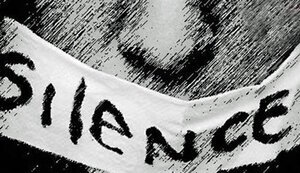St Clare’s unit, Temple Street Children’s Hospital, Dublin
Medium Sized c writes:
I was asked to share this around but given my limited social media footprint, I figured it might be better going to you guys
This is an an Irish Times story from earlier this month featuring an interview with a psychologist from Saint Clare’s unit in Temple Street Children’s Hospital.
That is a unit to provide expert interviewing services to form opinions on the veracity of claims of sexual abuse of children. They also provide therapy services to help children and families “pick up the pieces” as it were.
The article concerns an increasing trend of solicitors and barristers to try to obtain therapy notes from the service.
That is not reports and professional opinions but the notes taken in the process of therapy to help people recover from the trauma of sexual abuse.
You will understand that this is bad. If you have ever gone through the process of therapy you will understand that THIS IS VERY BAD AND DISTINCTIVELY NOT COOL.
People’s private thoughts shared in confidentiality are not evidence at the best of times, but in our ghoulish adversarial justice system where any and every little detail is turned over.
All of which is further complicated by the fact that we are taking about rape & sexual abuse here. Which means notes describing the victims feelings on an immensely traumatic event in their lives are made available to the DPP and by extension, the defence. Which sort of means the accused too.
Bear in mind that the vast majority of child sexual abuse cases are perpetrated by someone known to the family and know horror. It’s easy to miss, and I’m not sure what would be achieved by sharing, but it might raise some awareness in some way…
Pic: Temple Street Children’s Hospital







As a victim of abuse I can back this up. First thing you are told by your specialist councillor, is that if you name you’re abuser and take them to court, their entitled to every note that’s been spoken in therapy. That they are to see and use it against you should you go to court
What is and isn’t subject to disclosure orders in rape and sexual assault cases is a very difficult question. If information exists that may or may not be exculpatory evidence for the defence, any half decent brief will be up in arms if he’s told his client can’t have it. The defence will occasionally heavily insinuate to a jury that the only reason such notes haven’t been given to them is that they show the complainant has been lying through her teeth and demonstrate that she is an unreliable and vexatious individual.
Yup.
And there are these cases… http://www.salon.com/2010/09/20/meredith_maran_my_lie_interview/
I think it’s worth remembering here is that all lawyers are interested in is money.
Wow, what an insightful comment. Sterling contribution. The internet needs more people like you.
and the world needs less lawyers
You do strike me as the type who would represent himself.
With predictably disastrous results.
A properly trained therapist should ALWAYS know that their notes can be subpoenaed and keep them factual and clinical as a result. If a case like this goes to trial these facts will form the basis of the prosecution/defence anyway. Session notes should never contain conjecture or opinion on the part of the therapist and needn’t contain emotional material either. They should always be written as if they an and will be presented and exposed in court.
The therapeutic work that takes place in private needn’t be threatened by the notes taken and in fact shouldn’t be affected by it at all.
Absolutely.
Clinical and factual OR absolutely incoherent to anyone but said therapist.
A therapist can be called to explain his or her notes under oath, so the former is probably better. It’s like the old story of a doctor who was asked by a judge what “CTD” stood for on medical notes. The answer – “circling the drain”.
that’s a very banal story. am i missing something? why is it memorable/notable?
Sounds like someone’s never ‘circled the drain’.
This works both ways a client at one of the agencies where I work recently used their notes to prove they weren’t lying in a court case.
As Joe Cool says clients are told that notes will be taken and could be subject to court orders and this is why they only contain factual information about what was discussed and son’t contain the therapist’s view of what the client has told them.
*don’t